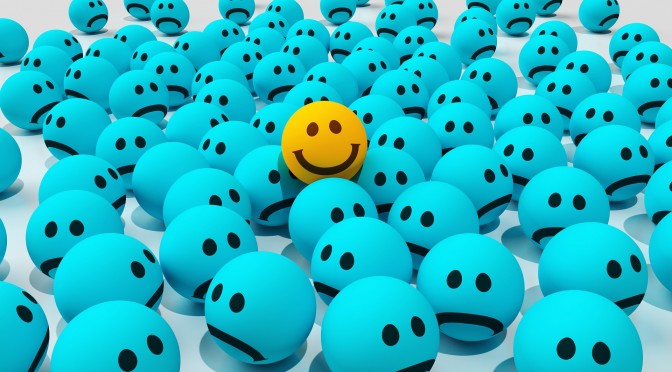International Day of Happiness
It’s about more than smiley faces
International Day of Happiness (#InternationalDayofHappiness) has been celebrated since the UN created this day of celebration in 2013. This has always been about more than simply individual happiness, sunshine and smiles, and in 2015, the UN launched 17 ‘Sustainable Development Goals’ focusing on essential components of happiness and well-being: an end to poverty, the reduction of inequality, and the protection of our planet.
This year, the UN have brought these under the banner of #SmallSmurfsBigGoals and have launched this video:
Happiness has developed a bad reputation over the years and is often associated with smiley faces and even a ‘tyrannical attitude’ of positivity, whereby everyone is expected to feel and act all shiny, smiley and happy; this is due to the misinterpretation of positive psychology. Right from its humble beginnings, when a few psychologists got together and wrote the ‘Positive Psychology Manifesto’, there was a strong emphasis on not just individual well-being, but also for communities and society to thrive.
If it can feel like hard work to improve our own happiness, then working on ensuring the world thrives may seem like an insurmountable challenge, but it is one that is worthwhile undertaking. We cannot flourish, as individuals, in isolation. In order to be truly happy, we need to go beyond the superficial, beyond the smiles and the laughter, and find meaning. It is through meaning, and a sense of purpose, that we can achieve true happiness.
So, should we all be miserable instead? Is happiness a fallacy?
Of course not. It is important for us to work on our own happiness and well-being, too. How can we even begin to make the world a better place if we’re not looking after ourselves? It’s the good old ‘oxygen mask’ analogy: When you’re on a plane, you are always told during the safety instructions to put the oxygen mask on yourself before you help others; you’ll be no good to anyone if you are unconscious or dead!
It is also important, however, to recognise and remember that our work isn’t done once we, as individuals, feel happy, and that there may be times when we feel real pain and anguish for others, or for the world at large, and need to take action to improve the situation before we can feel truly happy ourselves.
What can we do, then, to be happy?
Find meaning and purpose
Is there a cause you believe in and want to support? Is there something happening in your town, your country, the world, that is niggling at you and that you wish you could change? Take action: Volunteer your time, donate money where it’s needed (if you are able to), speak up about what’s happening so that others are better informed.
Play to your strengths
Identify your ‘signature strengths’ by taking a simple and free online test (and in doing so, you will also contribute to on-going research). Then, for seven days, try out a new way of using a key strength each day. Research (see p. 881 of the report) has shown that doing this can increase happiness and reduce depressive symptoms for up to 6 months. Identifying your own strengths is only the beginning. Think about the power of identifying strengths in families, friendships, workplace teams and beyond. You could vastly improve relationships and the functioning of groups to achieve common goals!
Take time out
Allow yourself to rest and recharge. Make time to do things you enjoy. If you are constantly on the go, you will burn out and be no good to anyone, least of all yourself. Even a one-minute meditation, if you are really pushed for time, can make a huge difference to your well-being. Identify the things that you like doing to unwind and make time for them in your hectic schedule. You will not only feel happier, but be more productive as a result.
Laugh
Laughter is essential to your well-being. It can reduce cortisol levels and release endorphins into your system, reducing your stress levels and giving you an immediate feeling of well-being. So make time to watch that funny film you wanted to go and see, don’t feel guilty for watching silly, funny YouTube videos to brighten your day, and why not try Laughter Yoga?
Sleep
Sleep is essential to your ability not only to be happy, but to function at your best and to be physically healthy. Look at your habits; are you sleeping enough? Do you feel constantly tired? Could you add an extra hour or so of sleep to your nights?
Where do you start?
If it seems daunting to tackle everything at once, just start off small. Choose something from the list above and start working on your happiness, then build from there. You will have a richer, more fulfilled life as a result, you will feel happier, and you will contribute to making the world a better place. Isn’t that something worth striving for on International Day of Happiness, and every day?



















